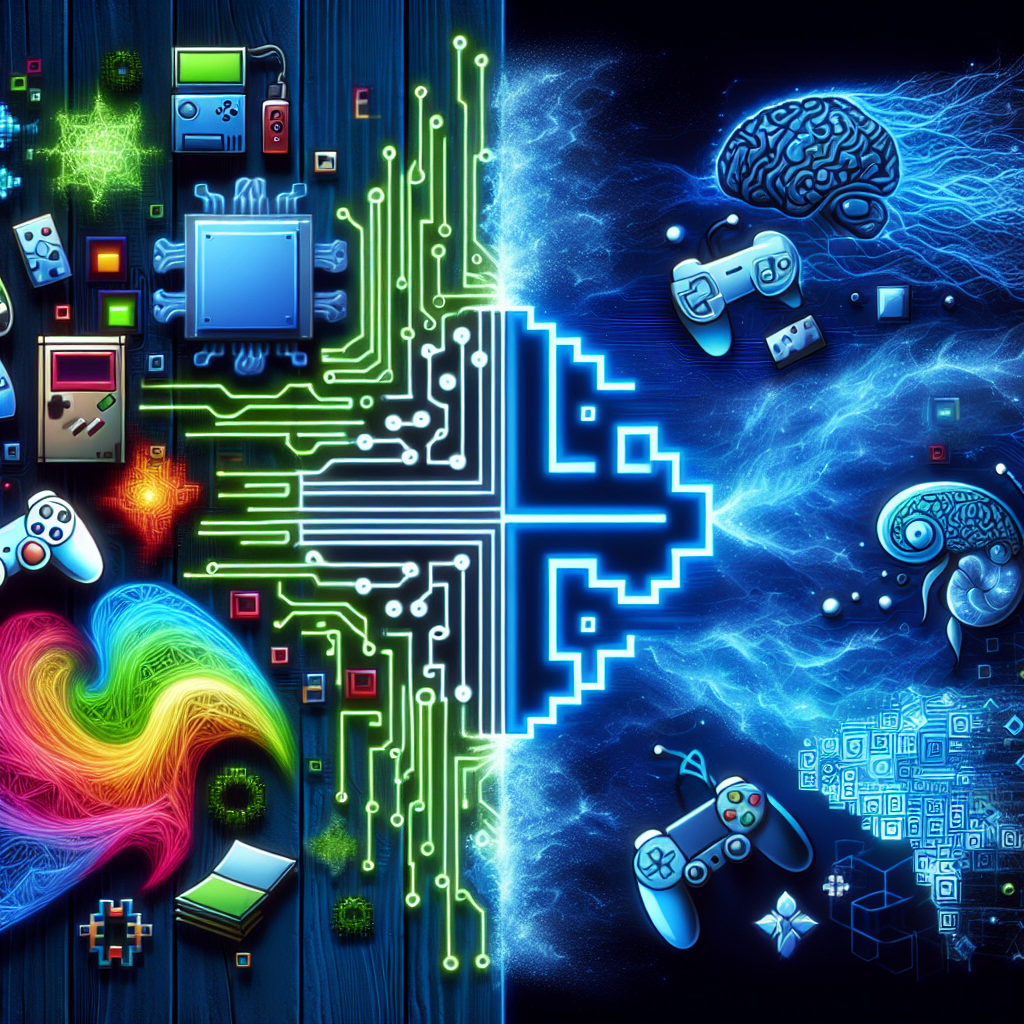Artificial Intelligence (AI) has been making significant strides in the gaming industry, revolutionizing the way games are developed and played. AI has the potential to transform traditional game genres and create new gaming experiences that were previously unimaginable. In this article, we will explore how AI is shaping the evolution of game genres and the impact it is having on the gaming industry.
AI and Game Development
AI has been used in game development for many years, primarily to create more realistic and challenging opponents in games. AI algorithms are used to simulate human-like behavior in non-player characters (NPCs) and to create dynamic and adaptive gameplay experiences. In recent years, AI has been used to generate game content, such as levels, quests, and characters, reducing the time and cost of game development.
One of the most significant advancements in AI game development is the use of machine learning algorithms to create procedurally generated content. Procedural generation allows game developers to create vast and complex game worlds that are unique and unpredictable. By using AI algorithms to generate content, developers can create games that offer endless replayability and variety.
AI is also being used to enhance player experiences in games. AI algorithms can analyze player behavior and preferences to create personalized gaming experiences. For example, AI can recommend games based on a player’s interests, skill level, and play style. AI can also adapt the difficulty of a game based on a player’s performance, providing a more challenging and rewarding experience.
AI and Game Genres
AI is reshaping traditional game genres and creating new genres that leverage the capabilities of AI technology. Here are some ways in which AI is influencing the evolution of game genres:
1. Strategy Games: AI has had a significant impact on strategy games, where players must use their tactical skills to outsmart opponents. AI algorithms are used to create intelligent and adaptive opponents that can challenge players in new and unpredictable ways. AI can also analyze player strategies and provide feedback on how to improve gameplay.
2. Role-Playing Games (RPGs): AI is transforming RPGs by creating more immersive and dynamic storytelling experiences. AI algorithms can generate complex and branching narratives that respond to player choices and actions. AI can also create lifelike NPCs that react to player interactions and evolve over time.
3. Simulation Games: AI has revolutionized simulation games by creating more realistic and dynamic virtual worlds. AI algorithms can simulate complex systems and interactions, such as weather patterns, traffic flow, and economic markets. AI can also create intelligent virtual agents that behave realistically and respond to player actions.
4. Action Games: AI is enhancing action games by creating more challenging and realistic opponents. AI algorithms can analyze player behavior and adapt the behavior of enemies to provide a more engaging and intense gaming experience. AI can also generate dynamic environments that respond to player actions in real-time.
5. Puzzle Games: AI is revolutionizing puzzle games by creating more intelligent and adaptive puzzle-solving algorithms. AI algorithms can generate puzzles that are tailored to a player’s skill level and preferences. AI can also analyze player strategies and provide hints and solutions to help players overcome challenging puzzles.
FAQs
Q: How is AI being used in game development?
A: AI is being used in game development to create more realistic and challenging opponents, generate game content, enhance player experiences, and streamline the development process.
Q: How is AI reshaping traditional game genres?
A: AI is reshaping traditional game genres by creating more immersive and dynamic gameplay experiences, generating procedurally generated content, and creating new genres that leverage the capabilities of AI technology.
Q: What are some examples of AI in game genres?
A: Some examples of AI in game genres include intelligent and adaptive opponents in strategy games, lifelike NPCs in RPGs, realistic virtual worlds in simulation games, challenging enemies in action games, and adaptive puzzle-solving algorithms in puzzle games.
Q: How is AI impacting the gaming industry?
A: AI is impacting the gaming industry by creating new gaming experiences, improving game quality and replayability, reducing development costs and time, and enhancing player engagement and satisfaction.
In conclusion, AI is shaping the evolution of game genres by creating more immersive, dynamic, and personalized gaming experiences. AI technology is revolutionizing the way games are developed and played, offering new possibilities and challenges for both developers and players. As AI continues to advance, we can expect to see even more innovative and groundbreaking games that push the boundaries of what is possible in the gaming industry.

